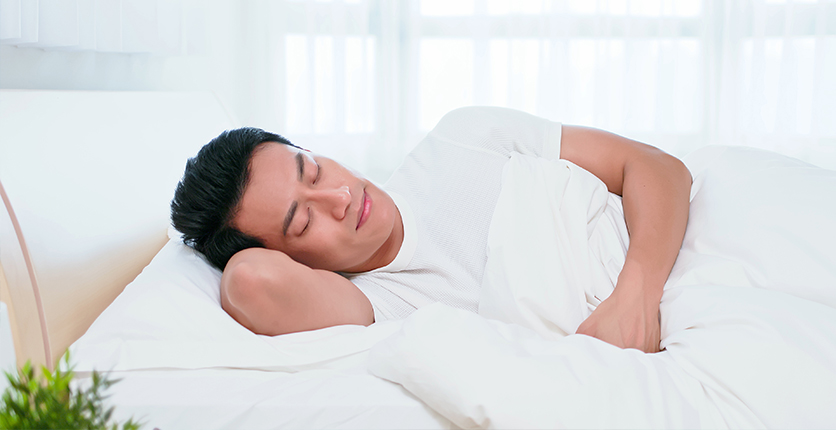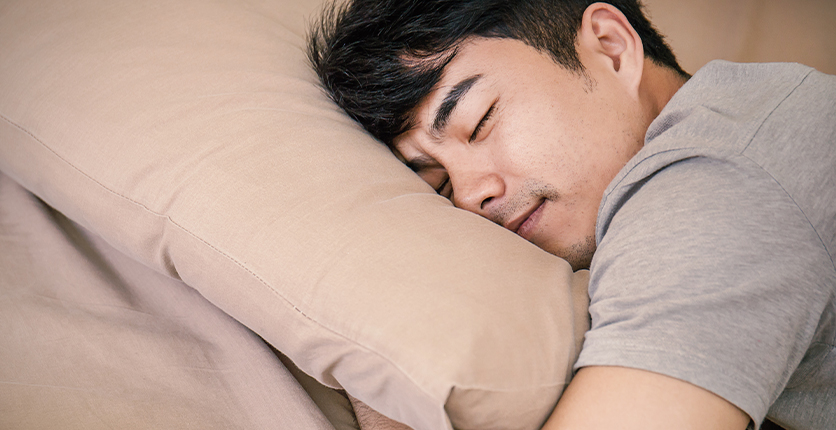There’s no better time than World Sleep Day on 15 March to highlight the importance of a good night’s sleep and the issues that prevent us from getting the rest we need.
Sleep is crucial to our physical, emotional and cognitive health. According to Dr Kenny Pang, an ENT specialist at the Asia Sleep Centre, poor or inadequate sleep can cause anxiety, fatigue, irritability, mood changes, and even depression. It may also affect our concentration, impact the way we deal with others, and, in the long run, increase our risk of certain conditions, such as obesity, diabetes and hypertension.
Many people find it hard to get the recommended seven to eight hours of sleep every night. Stress, long working hours, a restless sleeping partner and a poor sleeping environment may all affect our ability to fall asleep quickly and stay asleep. Those who suffer from sleep apnoea also have difficulty enjoying a good night’s rest.
But there are ways to reclaim your sleep, according to experts. Here are six:
1. Practise good sleep hygiene
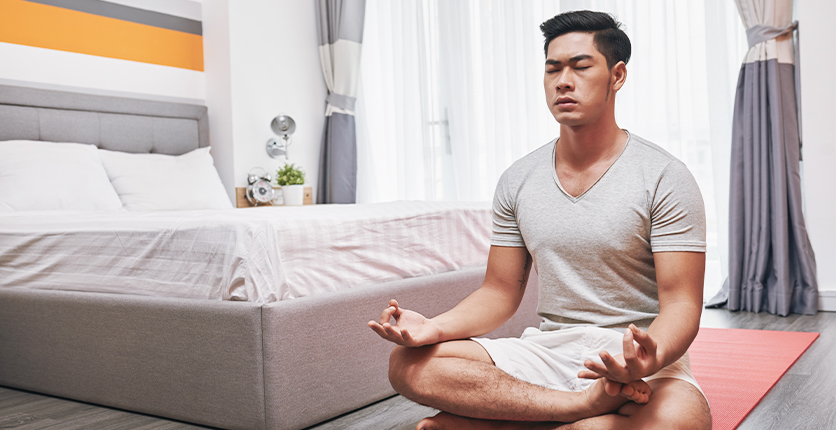
Dr Pang offers these tips to ensure a deep and restful sleep:
- Go to bed at the same time every night to help “set” your body clock.
- Exercise consistently, preferably in the morning. Evidence shows that regular exercise promotes restful sleep. Avoid exercising three to four hours before bedtime as this raises your heart rate and may interfere with your ability to fall asleep.
- Get exposure to outdoor or bright light during the day, to help regulate your sleep-wake cycle.
- Try to relax before bedtime with a warm shower, light massage or meditation.
- Don’t engage in stimulating activities, such as getting into an argument with a loved one or playing a competitive game, just before bed.
- Avoid consuming stimulating beverages like coffee (or anything containing caffeine like tea and energy drinks).
- Don’t go to bed too hungry or too full – the gastric discomfort may prevent you from falling asleep.
2. Avoid long naps

“Napping is a great way to catch up on lost sleep because it may help us function better and perform certain cognitive tasks faster,” says Dr Pang.
“However, if you have any form of insomnia or sleeplessness, avoid napping during the day. If you enjoy the odd midday power nap, don’t nap for longer than an hour or after 3pm, as this may make it difficult for you to fall asleep that night.”
3. Maintain a healthy sleep environment

Dr Pang shares a few pointers for making your bedroom conducive to sleep:
- The space should be cool and comfortable. A temperature of 20ºC to 23ºC is ideal. Too hot and you’ll perspire all night; too cold and you’ll be shivering.
- Keep your bedroom quiet. If your sleeping partner snores, suggest that he or she get help. Partners of snorers get two hours less sleep on average every night compared to partners of non-snorers.
- Your room should be dark enough to facilitate sleep. Melatonin, the hormone that regulates our sleep-wake cycle, is produced by our body in response to darkness. Melatonin levels rise by about 9pm or 10pm and peak by 1am to 2am.
- Don’t read, work or watch TV in bed. If your brain associates your bedroom with these stimulating activities, you’ll find it harder to fall asleep.
Read more on what’s keeping you awake and how to get better quality sleep.
4. Get help for sleep problems
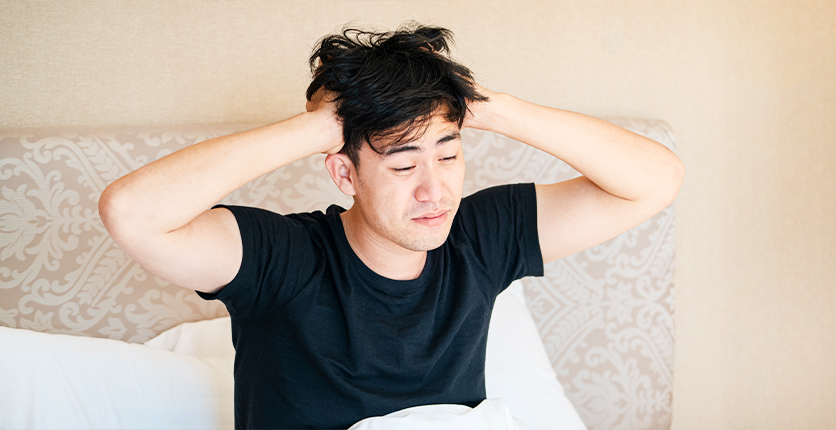
“Obstructive sleep apnoea (OSA) is a common sleep disorder, with the condition affecting over one-third of the Singapore population,” says Dr Pang.
“OSA occurs when the throat muscles relax and block the airway; a main symptom of the condition is snoring.”
OSA can affect one’s sleep quality, but worse, it can be dangerous as it may cause the sufferer to choke, hold their breath or wake up gasping for air during the night.
“Long-term health consequences include high blood pressure, heart disease, stroke and sudden death during sleep,” Dr Pang adds.
If you suspect that you have OSA, see a sleep specialist for help and treatment.
Nocturnal bruxism, or teeth grinding, is another problem that can disrupt sleep.
“It’s often attributed to factors like stress, anxiety, an abnormal bite, or missing and crooked teeth,” says Dr Jeffrey Sng, Specialist in Prosthodontics, Raffles Dental.
“Research also suggests that lifestyle choices, including alcohol consumption, smoking, and the use of certain medications, may increase susceptibility to bruxism.”
Dr Sng says that bruxism can significantly disrupt sleep quality by causing discomfort, jaw pain and headaches. The noise generated by teeth grinding can also adversely affect the sleep of your partner, contributing to sleep fragmentation and decreased sleep quality for both individuals.
A range of treatments is available to help sufferers of bruxism, from custom-fitted mouthguards to stress management therapies, and even dental correction if necessary.
SAFRA members enjoy member rates on dental services at Raffles Dental clinics. For more details, click here.
5. Try sleep remedies
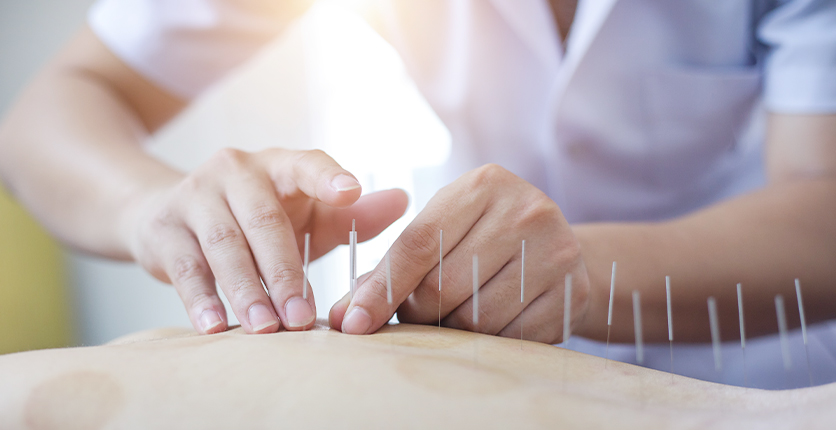
“Oral supplementary melatonin may be used as a sleep enhancer to help people who experience sleeplessness,” says Dr Pang.
“Melatonin is frequently used by people who cross time zones regularly and suffer from jetlag.”
You may also wish to try Traditional Chinese Medicine (TCM) therapies to improve your sleep.
According to TCM theory, insomnia may be attributed to various imbalances within the body’s energetic system, while snoring may be caused by several factors, such as excessive phlegm or dampness in the body, imbalances in the digestive system, stagnation of Liver Qi (vital energy), weak Qi, and incorrect sleeping position, says Tay Jia Yin, TCM Physician, Raffles Chinese Medicine.
As for restless sleep, TCM attributes this problem to certain imbalances within the body, like Spleen Qi deficiency, Liver Qi stagnation, Heart Shen disturbance, and excessive phlegm dampness.
There are many TCM herbal remedies that can be used to improve sleep quality, Jia Yin adds. These include:
- Suan Zao Ren (Sour Jujube Seed): Known for its calming properties, used to nourish the heart and liver, calm the mind and alleviate insomnia
- Fu Shen (Poria Mushroom): Used to resolve heart and spleen imbalances, particularly when insomnia is accompanied by palpitations, anxiety or digestive disturbances
- He Huan Pi (Mimosa Tree Bark): Known for its ability to soothe the liver and calm the mind. Often used to treat insomnia and emotional agitation caused by Liver Qi stagnation
“These herbs are often combined into formulas tailored to individual patterns of disharmony,” Jia Yin points out.
“Formulas may include additional herbs to address specific symptoms and imbalances contributing to poor sleep quality. It’s important to consult with a qualified TCM practitioner before using herbal remedies to ensure safety and efficacy, especially if you’re taking other medications or have underlying health conditions.”
Other TCM treatments, like acupuncture and cupping, may also be used in conjunction with other TCM modalities, she adds.
6. Check your bedding and invest in comfy sleepwear
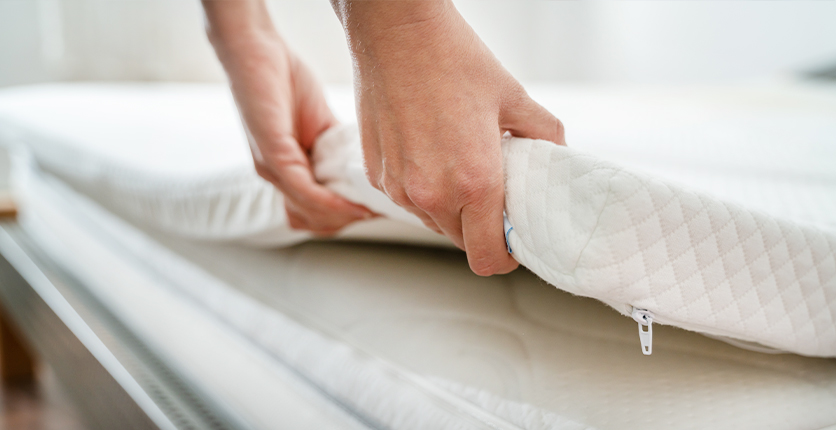
Make sure that your mattress provides sufficient back support and that your pillows don’t strain your neck. Test out different materials, brands and designs to find out what works for you or ask a mattress and bedding specialist for advice.
Your bedsheets and blankets should also be comfortable and keep you cool and cosy during the night. The same goes for sleepwear. Use sleep apparel made from light, breathable fabrics that don’t restrict movement.
Moo Moo Kow & Friends offers a range of sleep apparel, like pyjamas, night shirts, rompers and shorts for the whole family. SAFRA members enjoy 20% off storewide. For more information and terms and conditions, go to safra.sg/promotions/moo-moo-kow-and-friends.
Note: Please consult your GP or physician on managing your sleep issues.
For the full list of healthcare benefits for SAFRA members, go to safra.sg/promotions/
Save more with SAFRA! Enjoy special deals and discounts on dining, entertainment, travel, fitness and more from over 1,500 merchant outlets islandwide. Sign up or renew your SAFRA membership for one year at $43.60 inclusive of GST) and get two years FREE! Plus, get your spouse and children on board to enjoy the same privileges too at $5.45/year. Visit safra.sg/savemore for more details.
Want more articles like this, and other lifestyle content right in your inbox? Download the new SAFRA mobile app and opt in for the eNSman Newsletter – you don’t need to be a SAFRA member to subscribe – and never miss another story!
